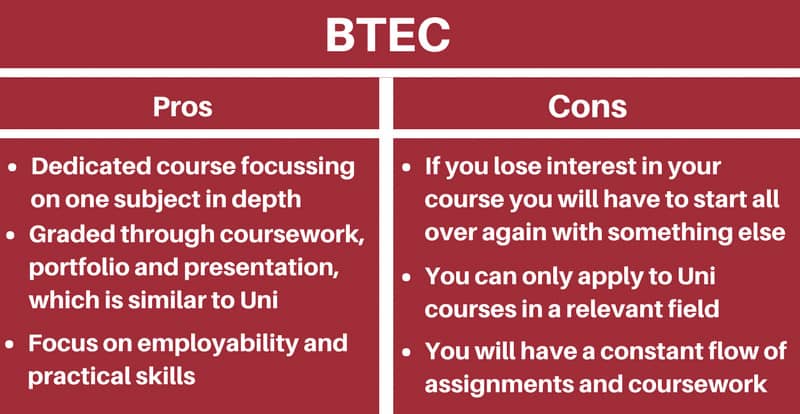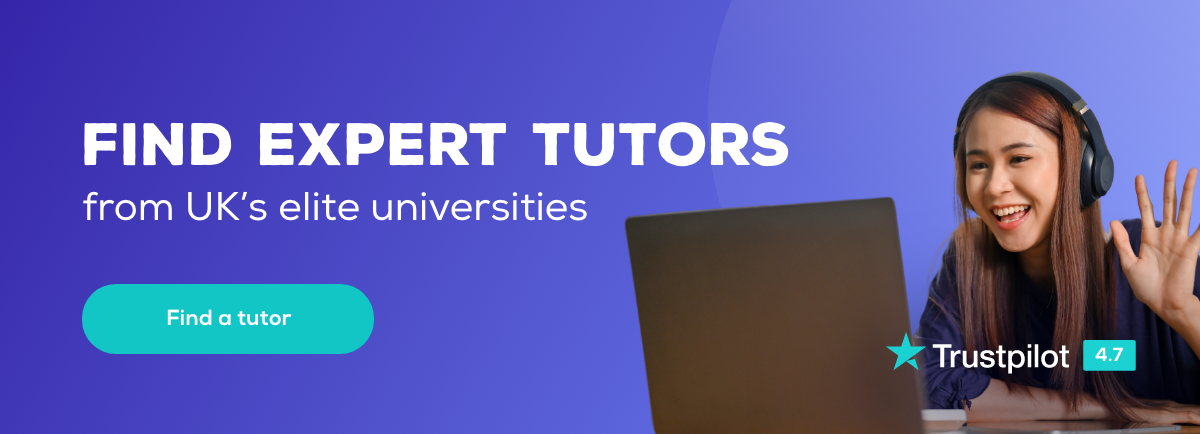Beyond A-levels – All A-level Alternatives
Are you standing at the crossroads of your educational journey, pondering the path beyond GCSEs? The traditional route of A-Levels might seem like the only way forward, but what if you yearn for something different? You’re not alone, and the good news is, there’s more than one road to success. Whether you’re drawn to hands-on learning, craving real-world experience, or eager to dive into coursework without the pressure of exams, the landscape of A-Level alternatives offers diverse opportunities.
Why Consider Alternatives to A-Levels?
The decision to pursue A-Levels post-GCSE is a significant one, but it’s not the only path available, nor is it suitable for everyone. Here’s why considering alternatives to A-Levels might be the right choice for you:
Different Learning Styles
Not everyone thrives in a traditional academic setting. Vocational courses and apprenticeships, for instance, offer practical, hands-on experience that can resonate with those who prefer learning by doing. Learn more about learning styles here.
Career-Focused Options
If you have a clear vision of your future career, specific routes like NVQs and apprenticeships can provide targeted training and real-world experience in your chosen field.
Less Stressful Assessment
For those intimidated by exams, coursework-based qualifications like BTECs provide an opportunity to demonstrate skills and knowledge without the high-pressure exam environment.
Global Perspectives
Qualifications like the International Baccalaureate offer a broader curriculum that can prepare you for studying or working internationally, enhancing your global outlook.
Flexibility
A-Level alternatives often provide more adaptable pathways, allowing you to mix and match subjects, levels, and even combine vocational and academic studies. This can lead to a more personalised and engaging education.
Access to Higher Education
Many universities accept qualifications other than A-Levels for admission, so these alternatives can still lead you to a university degree if that’s your goal.
Financial Considerations
Some routes, like apprenticeships, allow you to earn while you learn, offsetting costs and providing financial independence.
Unique Interests and Talents
Catering to creative or specific interests, various alternatives can foster talents that might not be addressed in traditional A-Level subjects.
Apprenticeships

Apprenticeships offer a blend of on-the-job training and classroom learning, allowing you to gain practical skills, experience, and a qualification. Here’s a deeper dive into this alternative to A-Levels:
A Suitable Path for Various Ages
School-Leavers
For those keen to step onto the career ladder early, apprenticeships offer a structured way to learn and work simultaneously.
Higher and Degree Apprenticeships
For older applicants aged 18-19, higher and degree apprenticeships provide alternatives to university while maintaining a strong educational foundation.
Invaluable Work Experience
First-Hand Knowledge
Gain hands-on expertise in your chosen field, allowing you to apply theoretical knowledge in real-world situations.
Wide Range of Industries
From creative sectors like media to traditional industries such as engineering, apprenticeships are available in various fields.
Financial Benefits
Earn While You Learn
Unlike traditional educational paths, apprenticeships allow you to earn a salary while acquiring skills, reducing financial stress.
Qualification and Progression
Leading to Recognised Qualifications
Apprenticeships result in recognised qualifications equivalent to various educational levels, depending on the type of apprenticeship.
Progression Opportunities
Successful completion of an apprenticeship can lead to further education, higher-level apprenticeships, or direct entry into a rewarding career.
How to Find an Apprenticeship
Government’s Apprenticeship Service
Search for apprenticeship vacancies and find detailed guides on the application process through official government channels.
Apprenticeships present a dynamic and adaptive option for those seeking a balance between education and work. By focusing on practical skills and industry requirements, this pathway offers a holistic learning experience that prepares you for success in your chosen field. Whether you are just starting your career journey or looking for an alternative to university, apprenticeships provide a flexible and financially appealing route that doesn’t compromise on quality education or career prospects.
T Levels
T Levels are an exciting addition to the educational landscape, designed to offer a more vocational approach to learning. They provide a mixture of classroom learning and industry placement, aimed at helping students gain real-world experience in their chosen field. Below, we’ll explore the key aspects of T Levels:
Introduction to T Levels
A New Qualification
Launched as part of the UK’s educational reforms, T Levels are an alternative to A-Levels, focusing on practical skills and industry collaboration.
Structure of T Levels
Industry Placement
T Levels include a significant work placement component, allowing students to gain hands-on experience in a related industry.
Technical Qualification
Classroom learning focuses on the technical skills required for the chosen industry, taught by professionals in the field.
Benefits of T Levels
Real-World Skills Development
T Levels offer students the opportunity to develop skills that are directly relevant to the job market.
Pathway to Employment or Further Education
Successfully completing a T Level can lead to employment within the industry or progression to higher-level technical training or university.
Available Subjects
Broad Range of Industries
T Levels are available in various sectors including digital, construction, education, healthcare, and more.
How to Apply for T Levels
Entry Requirements and Application Process
Understanding the entry requirements and knowing where to find T Level courses is crucial for prospective students.
T Levels represent a paradigm shift in the way technical education is approached in the UK. By bridging the gap between theoretical learning and practical application, they provide a pathway for students to directly engage with the industries they are passionate about. For those looking for an education that’s closely aligned with their career goals, T Levels provide an innovative and industry-relevant alternative to traditional A-Levels.
Vocational Technical Qualifications (VTQs)
Vocational Technical Qualifications, or VTQs, are another pathway for those who desire a more hands-on learning experience. VTQs are designed to prepare students for specific careers by focusing on the skills needed for particular occupations. Here’s an in-depth look at what VTQs offer:
Introduction to VTQs
What are VTQs?
VTQs are qualifications that combine practical learning with subject-specific skills. They are tailored to specific career paths and are often recognised by employers in the relevant industries.
Types of VTQs
Variety of Levels and Fields
VTQs come in various levels, from entry-level qualifications to higher-level technical certifications, across different sectors like hospitality, engineering, health and social care, etc.
Structure of VTQs
Combining Theory with Practice
VTQs include both theoretical instruction and practical application, ensuring that students are prepared for real-world scenarios in their chosen field.
Benefits of VTQs
Industry Recognition
Many VTQs are developed in collaboration with industry professionals, ensuring that the content is relevant and aligned with current industry standards.
Flexibility and Accessibility
VTQs can often be studied part-time or in conjunction with work, providing flexibility for those who may be balancing other commitments.
How VTQs Lead to Careers
Direct Pathways to Employment
VTQs often lead directly to specific careers, making them an appealing option for those who have clear occupational goals.
Applying for VTQs
Entry Requirements and Finding Courses
Information on entry requirements and how to find the right VTQ for your career goals is essential for prospective students.
Vocational Technical Qualifications represent a unique opportunity for students seeking a direct pathway into their chosen profession. With an emphasis on practical skills and industry collaboration, VTQs provide a robust educational framework that’s tailored to the specific needs of various sectors. For those who have a clear vision of their career path and are eager to dive into hands-on learning, VTQs are a compelling alternative to traditional A-Levels.
BTEC

BTECs are qualifications designed to provide specific vocational learning, aimed at a wide range of subjects. They are practical in nature and offer a pathway to both higher education and employment. Let’s delve into the various aspects of BTECs:
Introduction to BTEC
What is BTEC?
BTECs, or Business and Technology Education Council qualifications, are internationally recognised courses that focus on hands-on, practical learning, often aligned with specific industries.
Types of BTECs
Variety of Levels and Subjects
BTECs range from entry-level qualifications to higher-level certificates and diplomas, covering subjects such as business, engineering, healthcare, and more.
Structure of BTECs
Coursework and No Exams
Unlike traditional A-levels, BTECs are assessed through coursework, projects, and sometimes practical assessments, rather than written examinations.
Benefits of BTECs
Practical Skills Development
BTECs emphasise the development of practical skills, providing students with the experience and knowledge needed for specific careers.
Flexibility
With a wide variety of subjects and levels, BTECs offer flexibility and can be tailored to individual interests and career goals.
How BTECs Lead to Further Education or Careers
Pathways to University or Employment
BTECs are recognised by many universities and employers, often providing direct entry into higher education or specific job roles.
Applying for BTECs
Entry Requirements and Finding Courses
Understanding the entry requirements and finding the right BTEC course is key to aligning with one’s career aspirations.
BTECs provide a unique blend of theoretical knowledge and practical experience, creating a compelling pathway for students interested in specific vocational areas. With a focus on hands-on learning and real-world application, BTECs have become a popular and valuable alternative to traditional A-Levels for many learners seeking to pursue their interests and career goals in a more applied manner. Whether aiming for higher education or stepping directly into a career, BTECs offer a robust foundation tailored to individual needs and industry demands.
International Baccalaureate (IB)

The International Baccalaureate is an internationally acclaimed educational programme that offers a diverse and challenging curriculum. Known for its rigour and holistic approach to learning, the IB is recognised by universities around the world. Below, we’ll explore the various facets of the IB programme:
Introduction to IB
What is the International Baccalaureate?
The International Baccalaureate is a global educational programme that emphasises critical thinking, intercultural understanding, and broad academic study across various disciplines.
Types of IB Programmes
Primary, Middle, Diploma, and Career-related Programmes
The IB caters to different age groups with tailored programmes such as the Primary Years Programme (PYP), Middle Years Programme (MYP), Diploma Programme (DP), and the Career-related Programme (CP).
Structure of the IB Diploma
Six Subject Groups and Core Components
The IB Diploma requires students to study six subjects from distinct groups, including Language and Literature, Individuals and Societies, and Experimental Sciences, along with core components like Theory of Knowledge (TOK), Creativity, Activity, Service (CAS), and the Extended Essay (EE).
Benefits of the IB
Global Recognition
The IB Diploma is recognised by universities worldwide, and IB students often gain preferential admission.
Comprehensive Development
The IB’s holistic approach nurtures not only intellectual but also personal and emotional development.
Challenges of the IB
Rigorous Curriculum
The IB is known for its academic rigour, and students must be prepared for an intense and demanding study programme.
How IB Leads to Further Education or Careers
University Pathways
The IB provides a solid foundation for university study, with many universities offering credits or advanced placement for IB courses.
Applying for the IB
Entry Requirements and Finding Schools
Selecting the right IB programme and understanding the specific entry requirements is crucial for success in this challenging educational pathway.
The International Baccalaureate offers a rich, comprehensive educational experience that prepares students for success in the global community. Its emphasis on critical thinking, intercultural understanding, and well-rounded development makes it a desirable alternative for students seeking more than the traditional A-levels. Whether aiming for top-tier universities or looking to develop a broad base of skills for future career success, the IB presents an engaging and fulfilling educational journey.
Scottish Highers and Advanced Highers
Scottish Highers and Advanced Highers offer a distinct and reputable pathway for students in Scotland, serving as an alternative to A-Levels. These qualifications are fundamental for higher education admissions within Scotland and are recognised elsewhere in the UK as well. Here’s a closer look:
Introduction to Scottish Highers and Advanced Highers
What are Scottish Highers?
Scottish Highers are qualifications that are typically taken by students in S5 (fifth year of secondary school) in Scotland. They are an essential part of the Scottish education system and can lead to university, college, or employment.
What are Advanced Highers?
Advanced Highers are a continuation of the Higher courses, often taken in S6 (sixth year). They provide a greater challenge and depth of study, particularly useful for students aiming to enter university.
Structure and Subjects
The Curriculum
Highers and Advanced Highers cover a wide array of over 60 subjects, allowing students to choose according to their interests and career goals.
Assessments and Grading
Each Higher is comprised of units, and students must pass all units and the course assessment to attain the qualification.
Benefits of Scottish Highers and Advanced Highers
Flexibility
The system offers great flexibility, allowing students to study a broad range of subjects or specialize in particular areas.
University Admissions
Scottish Highers are often required for entry into higher education within Scotland, and Advanced Highers can provide additional advantages.
Challenges
Academic Rigour
The courses are academically demanding and require a dedicated approach to studying.
How Highers Lead to Further Education or Careers
Pathways to University or Employment
Highers and Advanced Highers are considered the equivalent of AS and A Levels, providing routes to various universities or direct entry into the workforce.
Applying for Highers and Advanced Highers
Entry Requirements and School Choices
Understanding the specific entry requirements and selecting the appropriate subjects is vital for a successful experience.
The Scottish Highers and Advanced Highers system provides a robust educational pathway tailored to Scotland’s unique academic environment. With diverse subjects, flexibility in study, and alignment with higher education and career opportunities, they offer a valuable alternative to traditional A-levels for Scottish students. For those looking to forge a path towards university or a specific career, Highers and Advanced Highers provide the tools and recognition needed to achieve those ambitions.
Cambridge Pre-U Diploma
The Cambridge Pre-U Diploma is an innovative qualification for students who seek a more academically rigorous alternative to traditional A-Levels. Designed to prepare students for university education, it offers an in-depth exploration of subjects and encourages independent thinking and learning. Here’s an extensive look into this diploma:
Introduction to Cambridge Pre-U Diploma
What Is the Cambridge Pre-U Diploma?
Launched in 2008, the Cambridge Pre-U Diploma is a two-year programme that aims to provide students with a well-rounded, advanced education that fosters analytical thinking and intellectual curiosity.
Recognition
Although relatively new, it is recognised by most of the big universities in the UK. However, it may not be suitable for those looking to pursue a more vocational education, as it’s not as well-established in that area.
Structure and Content
Principal Subjects
Students choose three principal subjects out of 27 available options. The choice of subjects allows for exploration of complex topics in more detail.
Additional Components
Alongside the principal subjects, students are asked to complete an independent research project and a global perspectives portfolio. These components enhance critical thinking, research skills, and global awareness.
Grading and Assessments
Evaluation
The grading scale consists of Pass, Merit, and Distinction. The assessments focus on understanding and application rather than rote memorisation.
Benefits of Cambridge Pre-U Diploma
Academic Challenge
For students seeking an intellectually stimulating programme that goes beyond surface-level knowledge, the Cambridge Pre-U Diploma offers an opportunity to dive deep into subjects of interest.
University Preparation
This qualification effectively prepares students for university studies by developing key skills such as independent research, critical thinking, and in-depth analysis.
Challenges
Availability
Currently offered in over 120 schools, accessibility may be limited depending on the region and specific academic preferences.
Recognition
Although growing in reputation, it’s worth checking with individual universities or career paths to ensure the Cambridge Pre-U is an accepted qualification.
Conclusion
The Cambridge Pre-U Diploma stands out as an academically challenging alternative to A-Levels, cultivating a love for learning and a readiness for university education. With its focus on intellectual growth, problem-solving, and real-world applicability, it’s an excellent choice for students aiming to explore complex subjects in depth. If you’re considering this qualification, researching specific universities’ acceptance policies and understanding the programme’s requirements will help you make an informed decision.
Extended Project Qualification (EPQ)
The Extended Project Qualification (EPQ) is a unique opportunity for students to engage in independent research on a topic of their choice. Providing an additional edge to academic credentials and personal development, the EPQ is valued by universities and employers alike. Below, we’ll explore the features, benefits, and considerations of the EPQ.
Introduction to Extended Project Qualification
What Is the EPQ?
The EPQ is an independent research project that students can undertake alongside A-Levels or Scottish Highers. It encourages curiosity, creativity, and scholarly exploration, culminating in a detailed research report or artefact.
Recognition
Widely recognised by universities, the EPQ can be equivalent to an AS level and may even influence university offers.
Structure and Content
Choice of Topic
Students have the freedom to choose a research topic that fascinates them, whether or not it is linked to their other courses.
Supervision
Though largely self-directed, the EPQ requires supervision from a teacher within the school or college, ensuring guidance and support throughout the process.
Assessment
The EPQ is assessed through the final project, a presentation, and a reflection on the learning journey. The grading aligns with standard A-Level grading from A* to E.
Benefits of Extended Project Qualification
Development of Key Skills
The EPQ enhances vital skills such as research, critical thinking, project management, and communication, making it highly valuable for both higher education and future careers.
Flexibility
The flexibility of the EPQ allows students to explore areas of personal interest, making learning more engaging and relevant.
University Preparation
Universities often view the EPQ favorably as it demonstrates a student’s ability to conduct independent research and handle complex topics, aligning with the demands of higher education.
Challenges
Time Management
The self-guided nature of the EPQ requires strong time management skills, and balancing it with other academic commitments can be demanding.
Supervision Limitations
While supervision is provided, the independent nature of the EPQ may pose challenges for those who struggle with self-motivation and direction.
How to Choose the Right Path
Selecting the right educational path is a pivotal decision that sets the course for future academic and career opportunities. With numerous alternatives to A-Levels available, it might seem overwhelming to decide the best option. Here’s a structured approach to guide you through this critical decision-making process.
Understand Your Interests and Strengths
Identify Your Passions
What excites and motivates you? Whether it’s creative arts, sciences, technology, or business, understanding what you’re passionate about will steer you towards a path that aligns with your interests.
Assess Your Skills and Strengths
Consider your academic and personal strengths. Are you more hands-on or theory-oriented? Assessing your abilities can guide you to a route that matches your skills.
Explore the Options
Research Various Qualifications
From BTECs to Apprenticeships, Extended Project Qualifications to International Baccalaureate, understand the nuances, structures, and requirements of each qualification. Consider how they align with your goals and interests.
Consult Professionals and Advisors
Seek guidance from teachers, career advisors, or professionals in your desired field. Their insights can provide a clear perspective on what might be the best route for you.
Consider Future Goals
University or Career Path
Are you aiming for a university education or jumping directly into a career? Different qualifications offer varying pathways, so consider your long-term ambitions.
Potential Careers and Industries
Think about the industry or career you want to pursue. Some qualifications might be more recognised or relevant in certain sectors.
Evaluate Practicalities
Entry Requirements
Ensure you meet the entry requirements for your chosen qualification. Whether it’s GCSE grades, employment status for NVQs, or specific skills for other qualifications, know what’s expected.
Location and Accessibility
Consider the availability of your chosen path in your region, travel considerations, and whether it’s a full-time or part-time commitment.
Reflect and Decide
Compare and Contrast
Make a comparative analysis of the available options, weighing the pros and cons of each against your unique interests, skills, and future goals.
Trust Your Instinct
Sometimes, gut feeling can be a strong indicator. Reflect on what feels right for you and trust your intuition.
Moving Forward: Embrace Your Unique Path with Edumentors
The journey towards higher education is not a linear road but a vibrant landscape filled with various paths, each leading to unique destinations. Gone are the days when A-Levels were the sole gatekeepers to success. Today, embracing the road less traveled can not only align with your unique passions and talents but also spark a revolution in how we perceive education.
Yet, uncertainty in choosing the right path can loom large, and that’s where guidance from experts becomes essential. Enter Edumentors, an online tutoring platform designed to illuminate your educational pathway. Unlike generic advisory services, Edumentors’ tutors are students from top UK universities, infusing their guidance with real-time, relevant insights.
What sets Edumentors apart is more than just expertise; it’s a commitment to individual dreams, academic goals, and the confidence that fuels them. They understand that the ‘right path’ is not a universal concept but a personal journey crafted with care, courage, and creativity.
So, if you stand at the crossroads of A-Levels and their alternatives, don’t just look for the well-trodden path. Seek the one that resonates with your soul, challenges your intellect, and inspires your future. And remember, with Edumentors by your side, the path is not a solitary one; it’s a shared adventure, filled with mentorship, inspiration, and a celebration of the unique brilliance that is you. Your journey is just beginning, and the possibilities are endless.










